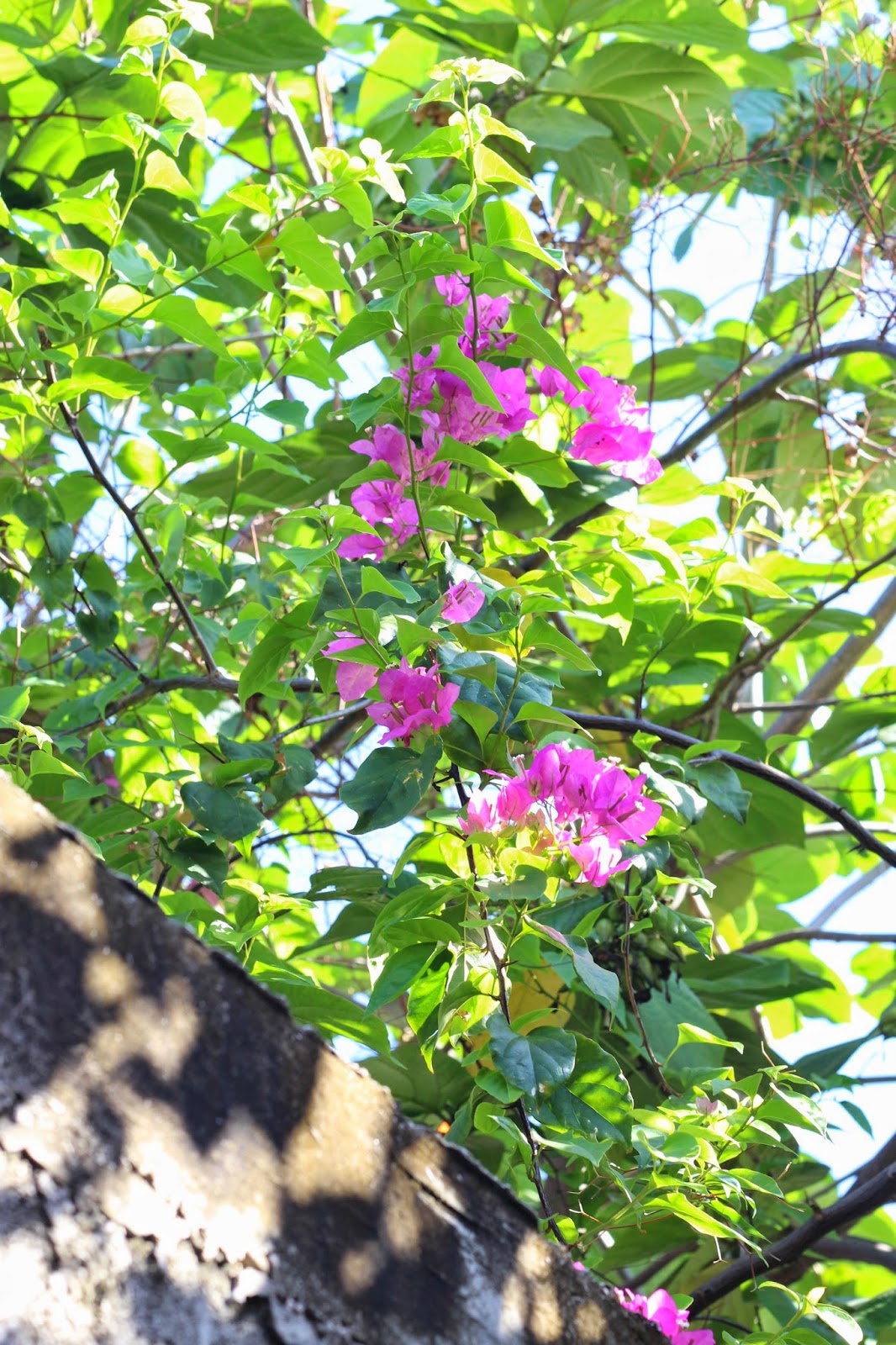In a previous post, I shared how two of the most challenging, yet rewarding experiences since we started with MCC Haiti have been during week-long work assignments in the U.S. capitol.
During both trips, I found myself thinking both this is so hard and this is so cool at nearly the same time.
In mid April, Ted and I took a somewhat unexpected opportunity to travel to MCC's Washington D.C. office to collaborate with partner organization Church World Service on a conference presentation on Haiti's justice system, share at First Mennonite Church Richmond about MCC Haiti's programs, and to participate in several advocacy visits with USAID, the World Bank, and the US State Department.
There were a lot of firsts during this trip!
I will share about our time in the form of several highlights.
1) Time to be back in the States
The hot water, the grandly decorated airbnb room we booked, and the yogurt, cream cheese and berries that awaited us for breakfast each morning - each of these things held a major 'WOW' factor for us that is probably hard to understand if you haven't gone without these things for a certain stretch of time.
The neighborhood where we stayed reminded us of Mt. Airy in Philadelphia, the last neighborhood we lived in before moving to Haiti. The low stone walls demarcating people's beautiful gardens, the sporadic cherry blossoms, and the large, early 20th century mansions were an appealing treat for our eyes.
2) Chance to be a tourist
During a few small pockets of time, we got to appreciate some new sites in D.C. For the first time, I got to go inside the Library of Congress. We also sought out some delicious eats such as the homemade pop tarts at Ted's Bulletin and a Cuban restaurant in our neighborhood. We also got a lot more savvy with the D.C. metro system, enjoyed some of the familiar monuments with friends on our final day, and discovered new hip spots such as the Eastern Market district.
3) Learning from the older and much wiser
The first part of our work trip was spent with participants at the annual Ecumenical Advocacy Days event. The main sessions and smaller breakout groups were filled with seasoned advocates - who are also ordinary citizens - from all across the U.S. The topic chosen by EAD coordinators for this year was Mass Incarceration in the U.S. They chose this topic several months before the blow ups in Ferguson and in other cities across the U.S. I will just say that the coordinators and participants put on such a display of faith, commitment, and severe passion for justice that were super encouraging and amazing to us. There were over 1,000 participants in total.
On Day 2 of the conference, Ted shared alongside a Church World Service colleague about the woes of Haiti's criminal justice system. He relayed in detail how the redundancies and corruption within the criminal justice system leaves 70% of inmates without even a proper trial. They sit in overcrowded prisons, often without food provisions, until fate, a bribe, or special circumstances allow them to see a judge and receive proper sentencing. Even though EAD has a primary focus on domestic issues, they create space every year for participants to attend a variety of workshops that expose them to difficult realities around the world.
4) Getting our 'advocacy' on
It's still a new experience for us to prepare strategic talking points, research the opinions of powerful decision makers, and enter into a private meeting with them, ready to share a very specific, clear message on behalf of others. This is the thrust behind an advocacy meeting in our role with MCC.
Our great colleague Charissa set up multiple meetings for us in the days after the conference. We sat with the Haiti Special Coordinator at the U.S. State Department, two members of the Haiti team at the World Bank, and the housing specialists at USAID. It was very interesting for us to gauge each organizations' level of interest in what we had to share, and also to learn about their current approaches towards development in Haiti.
Advocacy towards government bodies is a really fascinating thing. Being in D.C. - and Port-au-Prince for that matter - it's easy to sense the hugeness of government structures, and their immobility. Yet at the same time, as we did our own advocacy visits concerning Haiti issues, we could see the dozens of other EAD participants walking to their representatives' offices to share their views on certain legislation that could help stem excessive sentencing and the swelling prison population in the U.S. There is a history of citizen engagement with government in the U.S., and it was very eye-opening and impressive to see this.
This was especially noteworthy to me after being in a context like Haiti's for the past 11 months, where government bodies are notorious for being deaf to the majority of peoples' voices.
5) A little time to pause
This time was short. Yet who can deny the great opportunity we had to take a little bit of a breather each evening, enjoy some creature comforts, and - top of the list - see some great friends. Two friends from Maryland drove in for a Monday night dinner, where we had a couple hours to unload our news on them and share a delicious meal. A good Philly friend was attending the same EAD conference as us, and two special Philly friends bused down for our final day, to enjoy the sites together (in the cold rain no less!)
In addition, a long Sunday drive to Richmond, VA gave Ted and I a chance to take in the greenery, worship with a sweet congregation, and order that unnecessary egg sandwich and chai latte from Starbucks while on the road. It was just one year ago that we started our road trip adventure from Philadelphia out to San Diego, packing up all our earthly belongings on the long trek that eventually landed us in Haiti.














































